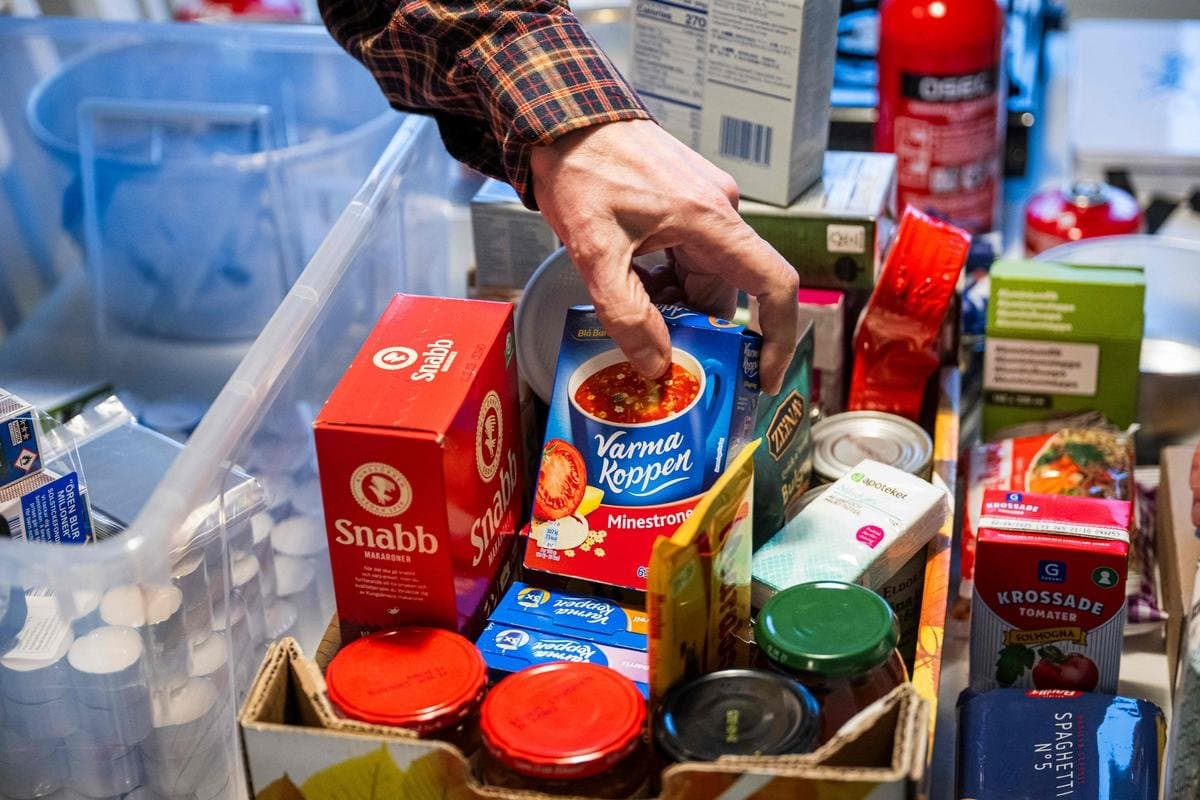Cans, portable water filter, pharmacy and radio. “This is what the State recommends storing” to survive the first days of a war, said survival expert Harry Sepp at his neighbor in Stockholm.
“The Swedes must mentally prepare for war,” declared the commander-in-chief of the Swedish armed forces, Micael Bydén, in January, alarming some of his compatriots. He prompted the population to question their degree of preparation in the face of an offensive Russia, while Sweden became the 32nd member of NATO a few days ago .
“These statements were necessary. Remember the situation at the time of the Covid pandemic,” notes Harry Sepp, a retired survival expert, who has provided training for more than twenty years.
The concept of “total defense” In front of his neighbor, the former trainer insists on the small dynamo radio which is recharged by cranking: “it’s the most important thing because if you don’t know what’s going on outside, you’re not going to know how long you must hold on.”
Rebecca, the neighbor who attended the demonstration and did not wish to give her last name, soaks up this advice. “You can prepare the equipment but that doesn’t mean you are mentally prepared for war,” argues this mother of three.
The brochure “In Case of Crisis or War”, sent to 4.9 million Swedish households in 2018 and translated into 14 languages, will be updated by the end of the year Swedish authorities reactivated their concept of “total defense” in 2015, after Russia’s occupation of Crimea, and intensified this effort after the invasion of Ukraine in 2022, appointing a minister of civil defense.
On the military front, Sweden reintroduced limited conscription in 2017, reopened a garrison on the Baltic Sea island of Gotland the following year and massively increased its defense spending after cutting it during the Cold War.
The principle of total defense? “Everyone can contribute and has a duty to contribute to defense,” explains Charlotte Petri Gornitzka, director general of the Swedish Civil Contingencies Agency (MSB), responsible for coordinating preparations in the event of a crisis. If you are in good health, you should be able to take care of yourself for a week” because “the State will take care of those who are least capable,” she emphasizes.
One in three Swedes is thinking about it In this context, the brochure “In Case of Crisis or War”, sent to 4.9 million Swedish households in 2018 and translated into 14 languages, will be updated by the end of the year.
Canned goods, stove, medicine box, the specialist prepares emergency containers. JONATHAN NACKSTRAND/AFP Canned goods, stove, medicine box, the specialist prepares emergency containers. JONATHAN NACKSTRAND/AFP Sweden has not experienced a war for 210 years but cultivated its civil defense during the Cold War before abandoning it after the collapse of the USSR.
After the army chief’s statements, the MSB commissioned a survey on the reaction of the population. A third of 1,000 people surveyed felt increased anxiety, particularly young people, and one in three people thought more about preparing their homes.
Expert in prepping However, “the preparation of homes (for war, editor’s note) is a very long process of change, which evolves very slowly”, estimates Herman Andersson, researcher at the Swedish Defense Research Agency (FOI).
For example, more than one in two Swedes estimate that they only have enough to drink for three days maximum in the event of a power outage and this rate has not changed between 2018 and 2022, according to the study carried out by the researcher.
“Taking measures to prepare individually for a war is a giant step forward,” believes this prepping specialist. Martin Svennberg, a 52-year-old IT engineer, has been passionate about “prepping”, preparing for crisis situations, for five years. “We have lived in peace for so long in Sweden that we have forgotten the damage that a war causes,” he believes, saying he is “very happy that finally a political leader is saying that we could have problems”.
This specialist maintains a website on prepping, YouTube videos and broadcasts podcasts with three friends. Their popularity has accelerated since the start of the year.
Self-sufficiency in food “Taking measures to prepare individually for a war is a giant step,” he judges. “We try to make things more accessible” to interested parties, by telling them to think about what they would do in the event of a fire in their home, for example. “It’s a personal apocalypse and a good start to prepare,” adds the engineer
However, he finds the MSB’s recommendation to be self-sufficient in food for seven to ten days insufficient.
“A week is a good start but I would recommend a month and even three months in reserve,” he explains. “The most important thing is to take small steps and buy one thing every time you go shopping.”
 1·9 months ago
1·9 months ago
